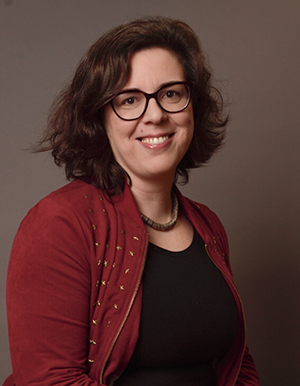Catarina Brito Lab
Advanced Cell Models - disease microenvironments & therapy response mechanisms

 |
Our research is mostly translational, focused on the study of the cellular interactions occurring within the innate immune microenvironment during disease progression and governing response to advanced therapies. To address these questions, we develop and employ cell-based disease models, using stem cells and other patient-derived cells and exploring three-dimensional culture strategies, along with cell biology and omics approaches. We aim to identify potential predictive biomarkers and microenvironment-related therapeutic targets for several neurological disorders and solid tumors. |
|
Catarina Brito Phone (+351) 214469434 | Extension 1434 |
|
Research Interests
As befits a technological area, the Advanced Cell Models – Disease Microenvironments and Therapy Response Mechanisms Laboratory is integrated into the Animal Cell Technology Unit, where a number of knowledge competencies are balanced.
The simplistic view of disease revolving around a target cell in its tissue has been challenged by the recognition of the role of the heterogeneous and dynamically evolving disease microenvironment in pathogenesis and therapeutic response. Treatment strategies that target or modify the abnormal disease microenvironment are currently a trend. As such, a deeper understanding of the mechanisms that drive the formation, maintenance, and progression of the disease microenvironment is necessary.
At the Advanced Cell Models Lab, our research is mostly translational, in the areas of cancer and neurological diseases. Our primary objective is to identify new molecular players in dynamic disease microenvironments that may be involved in disease progression and responses to therapy, to uncover novel therapeutic targets and predictive biomarkers of the response to treatment.
To better understand the mechanisms underlying the maintenance of disease microenvironments, we are developing innovative human 3D cell models. We employ advanced cell culture techniques such as 3D culture, co-culture, cell immobilization, and bioprinting, alongside sophisticated systems like microfluidics and bioreactors, to cultivate human stem cells and other cells derived from patients. These models accurately represent the various cell types contributing to the microenvironment and replicate the dynamics of both cellular and extracellular spaces without the confounding effects of heterologous ECM and soluble factors. By integrating cutting-edge techniques such as confocal imaging, transcriptomics, proteomics, and glycomics—including single-cell omics—we can observe and analyze the dynamic modulation of specific cell microenvironments over time or in response to therapeutic interventions.
Our group has pioneered cell-based strategies to tackle challenges in the imminent areas of cancer immunotherapies and viral vector-based gene therapies. We have been progressively focusing on chronic inflammation and myeloid cell-driven immunosuppressive microenvironments. We are developing complex cell models and generating biological knowledge along two central research lines:
1. Macrophage-tumor cell crosstalk within the tumor microenvironment in immunosuppression and resistance to immunomodulatory therapies;
2. Neuron-glia crosstalk in neuroinflammation in the central nervous system (CNS) and innate immune response to viral vector-based gene therapies.
Group Members
- Catarina Brito, PhD, Head of Lab
- Giacomo Domenici, PhD, Scientist
- Francisca Arez, PhD, Invited Scientist (Res Contract with Industry)
- Laurent Cotter, PhD, Invited Scientist (Res Contract with Industry)
- Viviana Correia, PhD, Post-doctoral Fellow (co-supervision with Angelina Palma, FCT NOVA)
- Nuno Lopes, PhD student (co-supervision with Angelina Palma, FCT NOVA)
- Catarina Gomes, PhD Student
- Gonçalo Trindade, PhD Student (co-supervision with Inês Isidro, iBET)
- Isabella Ramella Gal, PhD Student (co-supervision with Ana Sofia Coroadinha & Catarina Freitas, iBET)
- Inês Correia, PhD Student (co-supervision Catarina Freitas & Gabriela Silva, iBET)
- Inês Sá, MSc Research Fellow
- Inês Saldanha, MSc Research Fellow
- Margarida Delgado, MSc student
- Mafalda Aleixo, MSc Student
Selected Publications
- Gomes CM, Sebastião MJ, Silva GM, Moura F, Simão D, Gomes-Alves P, Alves PM, Brito C (2024) “Miniaturization of hiPSC-derived 3D neural cultures in stirred-tank bioreactors for parallelized preclinical assessment of rAAV”, Frontiers in Bioengineering and Biotechnology. 12:1379597. https://doi.org/10.3389/fbioe.2024.1379597
-
Batalha S, Gomes CM, Brito C (2023) “Immune microenvironment dynamics of HER2 overexpressing breast cancer under dual anti-HER2 blockade”, Frontiers in Immunology 14 – 2023 https://doi.org/10.3389/fimmu.2023.1267621
-
Simão D, Gomes CM, Alves PM, Brito C (2022) “Capturing the third dimension in drug discovery: spatially resolved tools for interrogation of complex 3D cell models”, Biotechnology Advances 55:107883. https://doi.org/10.1016/j.biotechadv.2021.107883
Laboratory's Website
For further information please visit the ACT webpage
Laboratório de Modelos Celulares Avançados (PT)
A nossa investigação é essencialmente translacional, centrada no estudo do papel do microambiente imune inato na progressão de doenças neurológicas e tumores sólidos, bem como na resposta a terapias avançadas. Para responder a estas questões, recorremos a modelos celulares de doença, baseados em células estaminais e/ou outras células derivadas de pacientes, explorando estratégias de cultura celular tridimensional. Combinamos metodologias de biologia celular e ferramentas omics para caracterizar os modelos desenvolvidos e identificar novas moléculas envolvidas na progressão das doenças e na resposta aos agentes terapêuticos.










